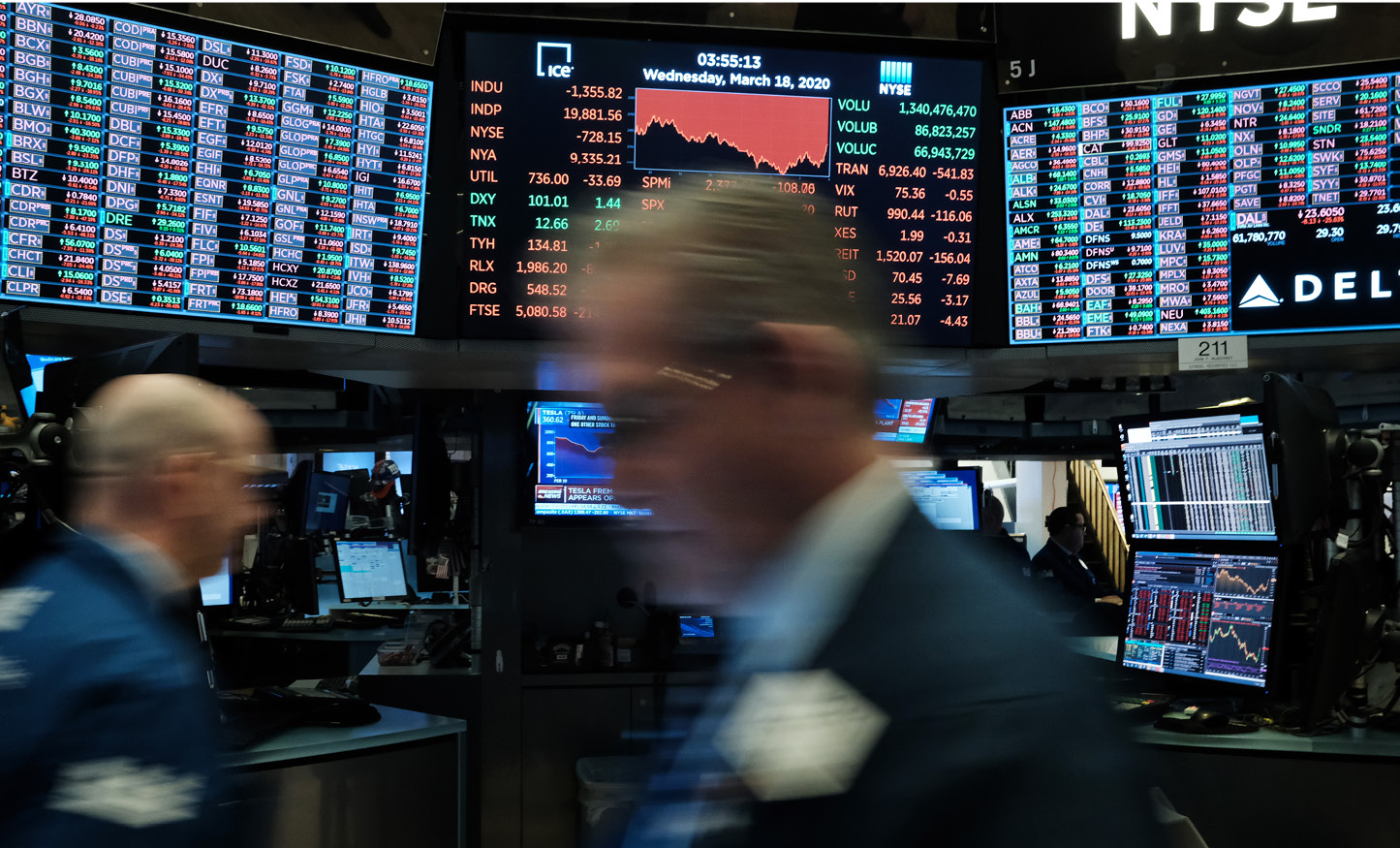
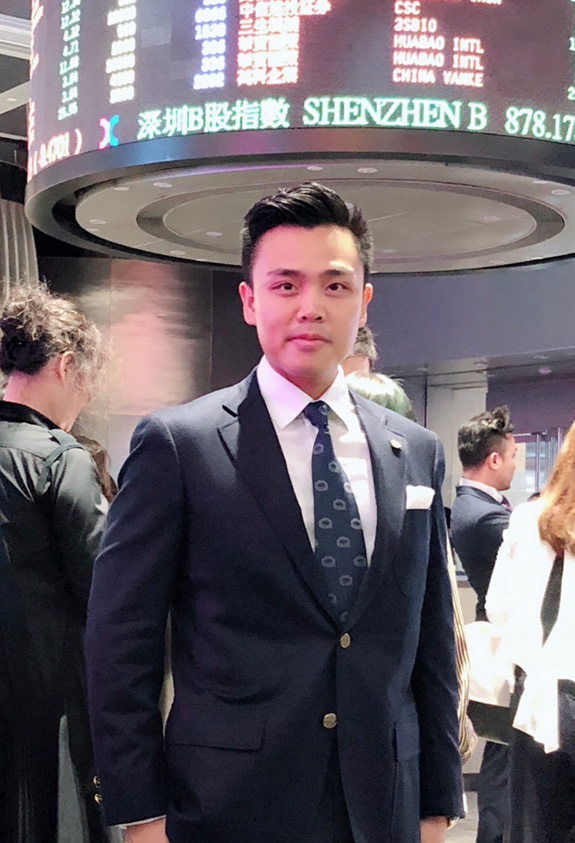

The Insider goes inside the financial markets to ride the rollercoaster that was 2020, while also gaining some perspective on what’s in store for 2021. It all comes courtesy of three Glion alumni who’ve forged careers in international wealth management.
In the global financial markets they are known as “black swan” events – unforeseen shocks that cause extreme volatility in stock and bond prices. Profitable for some, but potentially losing fortunes for those caught on the wrong side of the price swings.
By any measure, Covid-19 has been the blackest of swans. As soon as it became clear the virus had morphed into a global pandemic, the financial markets see-sawed violently. First they slumped with the realization that economic activity would be smashed by lockdowns; then most soared back when it became clear that unprecedented levels of government and central bank intervention would be deployed to ward off economic collapse.
What was it like to be on the inside in those crazy times? We gained some perspective from three Glion alumni who have made a home in the wealth management industry: London-based Julien Lafargue, who is Head of Equity Advisory at Barclays Private Bank; Hong Kong-based Jimmy H. Y. Lui, Associate Director Wealth Management at AIA; and Geneva-based Erwan Hartmann, Vice President – Wealth Management at Decalia.
Interestingly, all three noted that – despite the extreme market volatility – one thing missing among their high net worth/ultra-high net worth (HNW/UHNW) clients last year was panic. Why?
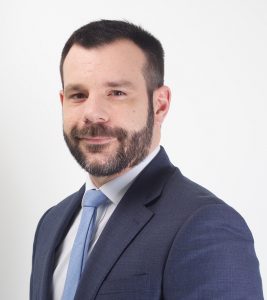
“The big change we have seen in recent years, and particularly since the financial crisis of 2008/09, is that investors have become more knowledgeable,” says Erwan Hartmann. “Clients are much more connected to the market and what happens around the world; and this means they tend to appreciate the longer term view. We also have to remember that although the markets initially crashed, the way governments and central banks stepped in so quickly helped to get things into recovery mode quite rapidly.”
That said, the nature of this particular crisis has made for a different – more challenging – type of client conversation. “We all have a macroeconomic background, so we are comfortable talking about these aspects. But suddenly last year we also had to become epidemiologists almost overnight,” notes Julien Lafargue.
“A lot of our clients have made their money in business, so they understand the ‘real’ economy and the corporate world. They are not so familiar with the mechanics of the markets, so they were left perplexed by the markets bouncing back while their own businesses were struggling. It was a real challenge to make the case for them to invest their cash when all they could see was bad news and talk of second waves of the pandemic.”
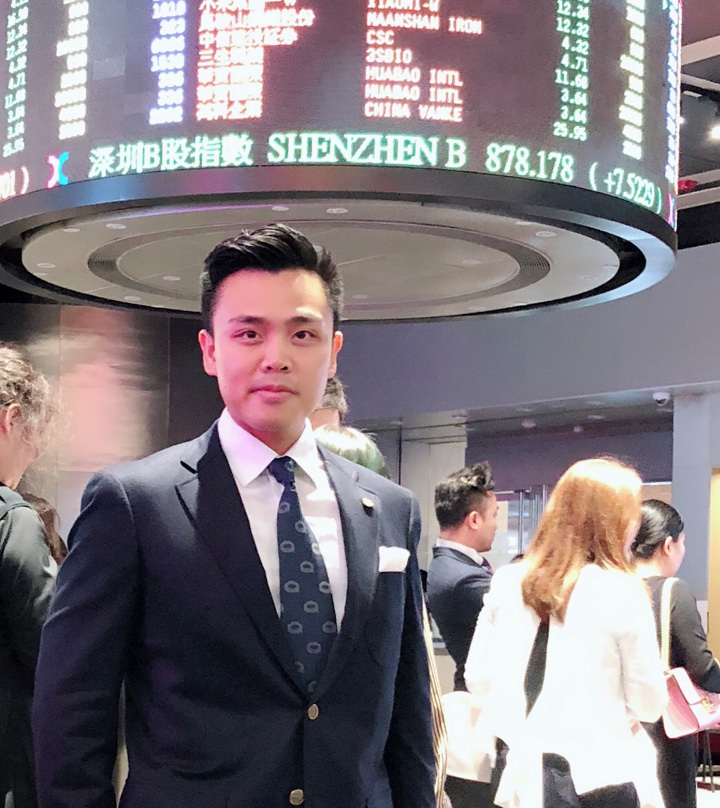
“The Chinese philosophy is to preserve wealth for future generations. The maxim is ‘enough for them to do everything; not enough for them to do nothing’.”
Jimmy H. Y. Lui
For Jimmy Lui, a natural ‘flight to quality’ among investors in times of crisis proved a bonus, since his company – AIA – is the largest insurer listed on Hong Kong’s Hang Seng index. It has a market capitalization of over a trillion Hong Kong dollars.
The company’s investment in technology over the past few years also paid dividends, as the traditional face-to-face client contact was curtailed by travel restrictions to and from mainland China.
“My main client base is in China and, until last year, I’d be jumping on a plane more than 30 times a year,” Jimmy says. “So the border lockdowns brought huge turbulence to the business. Instead of meeting face-to-face we kept in touch with clients using social media platforms like WeChat. And some of the digital innovations we used to think of as a gimmicks, like online form signing, suddenly became really useful for doing business.”
Like the other alumni, Jimmy also found his clients generally taking a sanguine approach to market turbulence. For this he credits the naturally conservative, forward-thinking approach of a typical Chinese HNW/UHNW investor.
“The Chinese philosophy is to preserve wealth for future generations,” he says. “The maxim is ‘enough for them to do everything; not enough for them to do nothing’. It means clients are typically not looking for quick profits; they are happy to invest in companies and sectors that will grow steadily as the world economy evolves.”
It’s a thought echoed by Julien Lafargue, who adds that it goes straight to the heart of the two rival investment philosophies currently dominating the equity markets: ‘growth’ and ‘value’.
“On the growth side are quality companies in long-term growth sectors – think Apple, Amazon, etc. – while on the value side are stocks that are more cyclical – banks, oil companies and the like – which value investors try to buy into at the low point in their cycle, then ride the wave upwards.
“There’s an element of the market which likes to gamble on the upside of the value stocks; but from a wealth management perspective we say buy quality companies, stay invested and let that money compound each year. We are investors not gamblers.”
“In volatile times an investor needs to shut out the emotional aspect; and this is where it becomes important to have independent wealth advisors who will stick to the facts and the fundamentals.”
As a third-generation banker, Erwan Hartmann has a long-term outlook and a focus on the fundamentals baked into his professional approach. “In volatile times an investor needs to shut out the emotional aspect; and this is where it becomes important to have independent wealth advisors who will stick to the facts and the fundamentals. For us, it is about investing in specific trends that will shape the world of tomorrow. During last year, we also made sure to gather experts around us, such as advisors on government policy, so we could hold conference calls with clients in order to keep them fully in the picture. That’s an element of ‘value-add’ you need in a business as competitive as wealth management.”
Picking winners for 2021
With 2021 now stretched out before him, how does Erwan see the prospects for the year ahead?
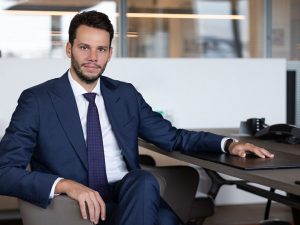
“One thing to note is that there is a mountain of investor cash waiting on the sidelines,” he says. “In the current interest rate environment, there are not many alternatives to equities or illiquid assets such as real estate or private equity.
“We saw strong fiscal stimulus packages from governments and ongoing central bank easing in 2020. Markets will be expecting more of the same. Further positive news on the vaccine developments, improved economic momentum and strong corporate earnings growth should help to offset concerns with regards to valuation multiples and investor complacency.”
For his part, Julien Lafargue is keen on emerging markets, while among the mature economies he has a preference for the US markets ahead of Europe and Japan. “I like markets where you find a stronger mix of tomorrow’s economy rather than yesterday’s… technology, software, healthcare for instance.”
Staying with the sector perspective, Jimmy Lui thinks there are some longer-term winners that investors will target. They include e-commerce applications and platforms (including food delivery), electric vehicles and industrial materials.
“We will see a lot more automation of services, which is a trend that’s been accelerated by Covid,” he explains. “For example, in China’s Guangdong province we’ve already seen the opening of a 2,000 sq. m restaurant that is entirely operated by robots – including all the cooking.”
And what of the hospitality and luxury industries? Jimmy points to an upsurge in future cruise bookings as better news for that sector, while in China a new taxation policy on luxury goods is prompting some high end consumers to direct their spending domestically instead of venturing to Europe and elsewhere. This is proving particularly advantageous to the fast-growing luxury resort of Hainan Island, which offers an exceptional array of 5* hotels from brands including Ritz-Carlton, St. Regis and Mandarin Oriental.
Nothing beats human contact
Whatever else happens in 2021, all our interviewees shared one overriding ambition: to get back to the relationship-building that their industry thrives on; and for which their Glion education prepares them so well.
“While I don’t miss my daily commute, and I haven’t had to spend money on suits and shirts, I miss the buzz of the office,” says Julien Lafargue. “Video calling has allowed us to keep in touch and I’m probably more productive due to having fewer meetings. But things definitely happen slower because you can no longer walk a few meters across the office to ask somebody something. And I miss having a beer with my colleagues after a long day at work.”
Erwan Hartmann sums up the feeling of all three alumni when he says that he especially misses face-to-face client contact. “Every day I’m looking to see when I might be able to take a plane to see my clients. I am passionate about my work and I’ve found it really depressing not being able to see people and discuss things face to face.
“It is just not the same by video.”
Main image credit: Spencer Platt/Getty
Become a master of finance
You can get the insider’s view of the global capital markets by studying our Master’s in Real Estate, Finance and Hotel Development in the global financial center that is London.

















